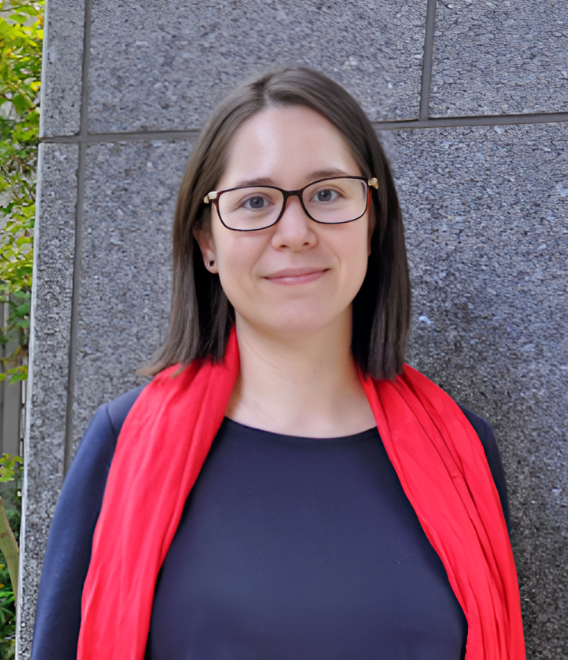Alice Pacher
 Alice Pacher is a lecturer in Sociology at Meiji University and Musashi University, Japan. She obtained her Doctor in sociology from Meiji University in 2020, with a dissertation on the Japanese sexless phenomenon. Her doctoral thesis was published as monographs „(No) Sex in Japan“ (Springer) and „Shitaikedo Mendokusai“ (Koyobosho) in 2022.
Alice Pacher is a lecturer in Sociology at Meiji University and Musashi University, Japan. She obtained her Doctor in sociology from Meiji University in 2020, with a dissertation on the Japanese sexless phenomenon. Her doctoral thesis was published as monographs „(No) Sex in Japan“ (Springer) and „Shitaikedo Mendokusai“ (Koyobosho) in 2022.
Her research focuses on married and unmarried couple relationships in contemporary times with a particular emphasis on intimacy, gender and sexuality. Currently, she is working on a research project on sexuality among Japanese young adults (an ongoing grants-in-aid for scientific research, Kaken– project) and on the correlation between population density and sexuality (an ongoing project).
Håvard Friis Nilsen
 Håvard Friis Nilsen, Ph. D., is Professor of Social Science at Ostfold University College, Norway. He studied history of science, psychology and political science at the University of Oslo and Universite Louis Pasteur, Strasbourg. He was a Visiting Scholar under prof. John Forrester at Dept. of History and Philosophy of Science, Cambridge University, and lectured there on the history of psychoanalysis. He has written on the history of psychoanalysis in several articles and books, among them “Resistance in Therapy and War” in The International Journal of Psychoanalysis, and his book “Wilhelm Reich and Psychoanalysis” is due to appear via Routledge in 2022.
Håvard Friis Nilsen, Ph. D., is Professor of Social Science at Ostfold University College, Norway. He studied history of science, psychology and political science at the University of Oslo and Universite Louis Pasteur, Strasbourg. He was a Visiting Scholar under prof. John Forrester at Dept. of History and Philosophy of Science, Cambridge University, and lectured there on the history of psychoanalysis. He has written on the history of psychoanalysis in several articles and books, among them “Resistance in Therapy and War” in The International Journal of Psychoanalysis, and his book “Wilhelm Reich and Psychoanalysis” is due to appear via Routledge in 2022.
Luciano Nicolás García
 Luciano Nicolás García, Doctor in History, Universidad de Buenos Aires (UBA). Assistant Researcher, Consejo Nacional de Investigaciones Científicas y Técnicas, Argentina. Assistant Research Professor, Psychology Faculty, UBA. His work focuses on history of psychology and psychiatry, as well as the history of leftist culture.
Luciano Nicolás García, Doctor in History, Universidad de Buenos Aires (UBA). Assistant Researcher, Consejo Nacional de Investigaciones Científicas y Técnicas, Argentina. Assistant Research Professor, Psychology Faculty, UBA. His work focuses on history of psychology and psychiatry, as well as the history of leftist culture.
Research Subject: Individual Psychology and the politization of psychology in France and Argentina (1929-1950).
Alfred Adler is usually regarded as an important figure in 20th Century psychotherapy, both in Europe and USA, as he was one of the authors usually credited with renewing psychiatry with dynamic theories of the psyche and its psychopathologies. Yet, his Individualpsychologie was more than a clinical approach to psychology, with many of his ideas being appropriated in diverse contexts for different uses. This research focuses on those appropriations beyond the context of Central Europe, how Adler’s views on the way social hierarchies and power dynamics modulates psychological development were meaningful to leftist psychiatrists, psychologists, and philosophers in France and Argentina, between the interwar period and the first years of the Cold war.
Authors like George Politzer and Aníbal Ponce were early adaptors of Adler’s ideas in a time when both were turning to communist and antifascist activism. They introduced Individual psychology to a series of leftist psychologists and psychiatrists that later combined it with other Marxist-based psychological and psychopathological theories. This research traces historical sources of Adler’s contact with non-Austrian authors, journals, and publishing houses, so as to reconstruct the transnational circulation of his work. Thus, the focus is not on his persona, but on the formation of an “adlerianism”, how his ideas were appropriated, modified, and combined with other psychological theories by leftist authors, particularly French and Argentinian, and on assessing his place in the articulation between leftist culture and psychology. In that way, Adler would be considered as a part of a genealogy of scholars that considered the issue of power differences as a subject matter in psychology and psychiatry.